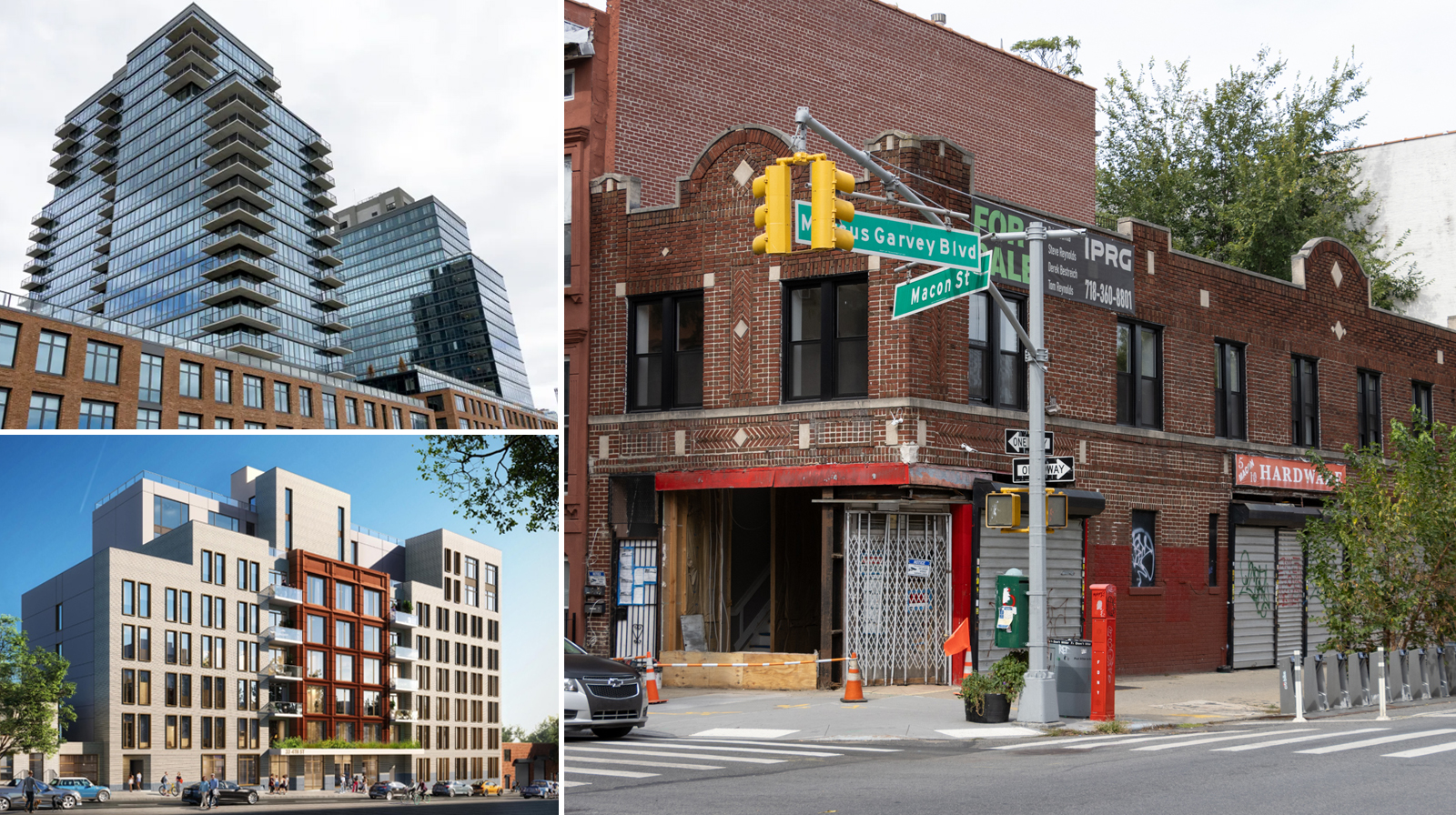Extending 421-A: Does It Matter?
The Times and WNYC have stories today about the proposed extension of the 421-a tax abatement, which gives developers tax breaks on new construction. Real estate interests, of course, think the abatement should be extended in order to spur development, as does Housing Commissioner Rafael Cestero, who tells WNYC extending the tax break will bring…

 The Times and WNYC have stories today about the proposed extension of the 421-a tax abatement, which gives developers tax breaks on new construction. Real estate interests, of course, think the abatement should be extended in order to spur development, as does Housing Commissioner Rafael Cestero, who tells WNYC extending the tax break will bring jobs and go a long way toward reversing bust-induced blight. On the other hand, Cestero tells the Times that “his agency was granting many individual developers extensions anyway, and that this change merely extended benefits that the developers would have taken advantage of had the market never crashed.” Councilman Brad Lander is a critic of the proposed three-year extension, which there’s supposed to be a hearing about today, noting “the extension could cost the city $420 million in tax revenue, presuming that the extension would lead to the construction of 7,000 units” and saying We don’t need to be giving a huge bailout tax break to assist vacant sites to become the next luxury projects.” The best quote, though, is from one of Brooklyn’s biggest developers, Isaac Katan: “A lot of proposed construction projects, especially in the outer boroughs, do not make any economic sense even with a tax abatement in place…In the majority of cases, removing the tax abatement is just the straw breaking the camel’s back.” The logic on both sides of this one is getting a bit difficult to follow.
The Times and WNYC have stories today about the proposed extension of the 421-a tax abatement, which gives developers tax breaks on new construction. Real estate interests, of course, think the abatement should be extended in order to spur development, as does Housing Commissioner Rafael Cestero, who tells WNYC extending the tax break will bring jobs and go a long way toward reversing bust-induced blight. On the other hand, Cestero tells the Times that “his agency was granting many individual developers extensions anyway, and that this change merely extended benefits that the developers would have taken advantage of had the market never crashed.” Councilman Brad Lander is a critic of the proposed three-year extension, which there’s supposed to be a hearing about today, noting “the extension could cost the city $420 million in tax revenue, presuming that the extension would lead to the construction of 7,000 units” and saying We don’t need to be giving a huge bailout tax break to assist vacant sites to become the next luxury projects.” The best quote, though, is from one of Brooklyn’s biggest developers, Isaac Katan: “A lot of proposed construction projects, especially in the outer boroughs, do not make any economic sense even with a tax abatement in place…In the majority of cases, removing the tax abatement is just the straw breaking the camel’s back.” The logic on both sides of this one is getting a bit difficult to follow.
City Weighs Extending a Tax-Break Deadline [NY Times]
City Proposes Extending Tax Breaks For Developers [WNYC]





Abolish it as it only helps developers sell condos at higher prices. If you can’t develop without a tax break than maybe the “structure” needs fixing.
“tax reform isnt even on the horizon”
FSRG;
Unfortunately, you are correct, at least in the near-term. Come 15-20 years from now, when alot of these abatements will be phasing out (and a critical mass of NYC’s middle class will be living in condos), I suspect there will be alot of momentum for property tax reform.
Benson – I agree with your solution; and you can see from my 1st post I acknowledge that 421-a isnt really an ideal program for spurring development (or tax fairness)
Unfortunately I think the realistic choice is an extension of 421-a or nothing – tax reform isnt even on the horizon
Wouldn’t a better solution be as follows?
a) extend the 421-a, but with a programmed phase-out to allow the market to adjust to the loss of this subsidy;
b) rationalize NYC’s property tax structure, which is a relic of a past era. Specifically, condo/co-op owners are taxed at a much higher rate than owners of 1-2 family homes, and a more equitable structure should be put in place. If condo taxes were more rational, there would be less of a need for this subsidy.
FSRQ explains it. Without the program, you will deliver one bedrooms to the sales market with $1000/month in taxes. Kills it.
The program should have been modified by a quicker phase in on the taxes and elimination of some very fancy areas. The baby was thrown out with the bathwater.
When the legislation was in Council, many members jumped in to get their districts covered, some of which still needed it.
Don’t forget, with development, no taxes would exist at all.
“Let is age out!” I meant “Let it age out…”
Absolute waste, benefiting the developer and not the City’s tax coffers. We have a glut of new development, sitting vacant and paying far less taxes then they should.
Let is age out!
Around December of 2009 there was something like 500 stalled condo projects in Brooklyn alone. In the last year only about 195 projects have started up again with 45 being completed. It seems a little premature to keep pushing development to encourage even more building when they’ve yet to sell the inventory they already have.
Grandpa – if you want to keep 421-a to only zoned residential (which it mostly is) fine. But your claim that the land was used for different purposes belies reality for the vast majority of sites. The vast majority of locations are residential neighborhoods where the only realistic (and appropriate use) for the site is/was residential housing. And having the land lay dormant (or vastly underutilized) will do nothing for teacher layoffs or anyone else (while construction, devlopment and sales will generate 100’s of millions of revenue and subsequent and immediate tax revenue)